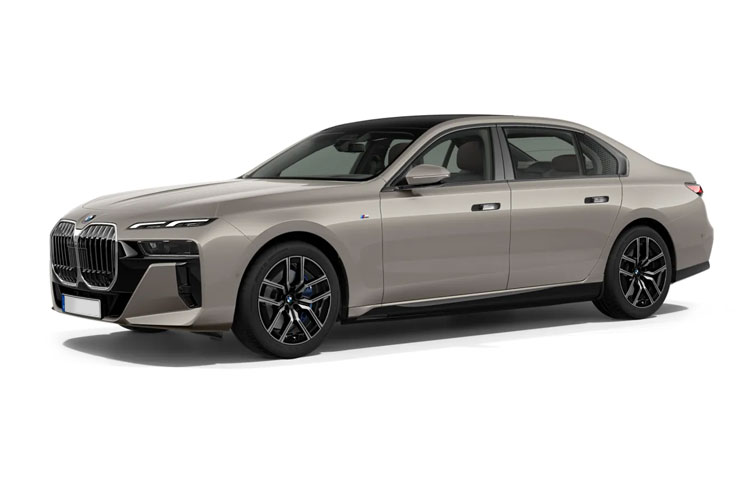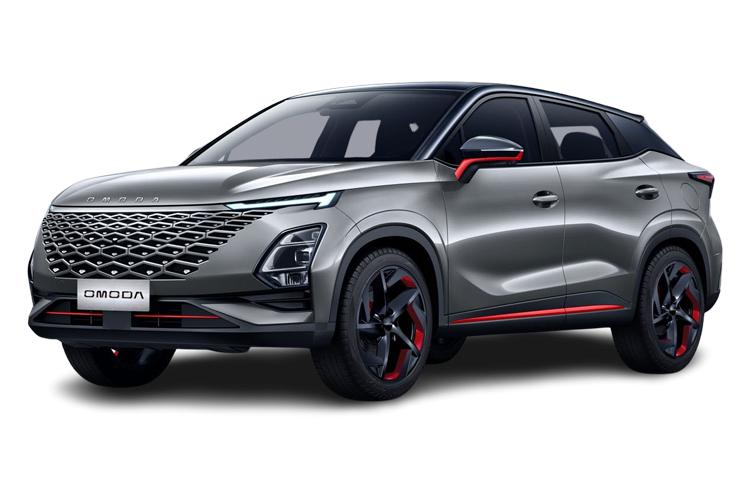
Tax Benefits of Electric Vehicles for Sole Traders - What Are They & How Do They Benefit You?

(Posted on 15/11/24)
As you may have heard, there is a wide range of tax benefits and tax breaks for electric vehicles that you can take advantage of, especially if you are a small business or a sole trader looking to reduce your CO2 emissions and take advantage of government incentives to do this as well.
The tax treatment of electric vehicles, whether you are considering a brand-new car or a second-hand model, varies depending on several factors, such as vehicle use, how you have acquired it, under what type of contract, and the emissions level they give off when you drive it. For instance, the exact percentage of the car’s price on which you pay tax is determined by the CO2 emissions and fuel type it outputs.
While sole traders don't face the Benefit-in-Kind (BIK) tax that affects employees of a company, there are still considerable perks and cost savings to owning an electric vehicle, as a company vehicle for business use only, especially. Here, we will break down the core car benefits that, as a business owner, you can really use to maximise these benefit charges on your taxes.
So, let's find out what you need to know to get the most out of your next car.
How Have You Acquired Your Electric Car?
How you have acquired your electric car / vehicle matters here, as the tax benefits and incentives will vary based on the means you are driving it.
For example, sole trader electric cars brought in the following ways, matters because:
Outright Purchase
For sole traders opting for an outright purchase of a brand-new electric vehicle at the full value, there’s a valuable tax incentive here - the First Year Allowance.
For those opting for an outright purchase of the total cost of an electric car, for example, the ability to claim 100 per cent of the purchase cost against your taxable profits for the tax year as a first-year capital allowance is a significant advantage.
This then does give you a compelling incentive, especially as these will have a business use element when it comes to you considering lower-emission vehicles.
That said, with a lot of brand-new electric cars now coming in at £60,000 - £70,000 and upwards, you need to align this incentive with the loss of your operating cash flow to be able to carry this out.
This is due to other car finance options, such as leasing, giving you better ways in which you are not using such a large portion of your available cash flow in investing in a depreciating asset - that you could use for business growth instead. Leasing, for instance, as you will find out, allows you to drive the same car for much less, as well as not worrying about the depreciation - or the sales tax that comes later on when you sell the business asset - all while you keep your existing cash flow on hand to help you expand your business's bottom line in the process.
Then, in cases where there are no available profits in the current year, these allowances can be used to create a loss, which can then be offset against other incomes or carried back to previous years or future profits, for instance.
Alternatively, businesses can choose to claim allowances of 18% each year, gradually reducing the balance until the full cost of the electric vehicle has been claimed or sold.
However, it's important to note that this option applies only to brand-new vehicles; second-hand electric cars are also eligible for a Writing Down Allowance of 18% annually only.
It is key to consider the business use aspect as well, as personal use of the vehicle will restrict the allowable capital cost that you can then claim as well.
Leasing
For sole traders who lease an electric car, the tax treatment differs as the business does not own the vehicle.
While you can’t claim capital allowances on the cost of the vehicle, you also don't own an asset that can depreciate at 40% within the first 2 years, but you can claim 100% of the monthly lease payments, which can be deducted for tax purposes - limited to the business use percentage.
Additionally, if the car is also going to be used for personal use as well, then you can also claim 50% of the VAT on the lease payments (for the business portion of the car's use), or 100% if it's solely for business use - such as for an electric van lease for example - as well.
Finance Lease
With finance leases, the vehicle is returned at the end of the contract, and you don’t claim capital allowances.
Instead, here, you can claim tax relief on the depreciation and interest charged on the lease as well as on the monthly payments you make.
For example, for vehicles emitting over 50g/km of CO2, only 85% of the depreciation is allowable - again, as with the others, this claim must be restricted to business use only as well.
Operating Lease
For short-term car rentals, operating leases then allow you to claim tax relief on the lease payments.
However, a CO2 emissions threshold of 50g/km applies here as well, limiting the allowable deduction if emissions are higher than this.
As with other types of leases, the claim is limited to the element of business use that the vehicle does.
Flat Rate Mileage Allowance
If you prefer a simpler approach, you can also claim a flat rate mileage allowance for business miles driven in an electric vehicle.
The rate is 45p per mile for the first 10,000 miles, then reduces to 25p per mile thereafter.
However, you should note that this choice is fixed for the vehicle’s lifetime, meaning you can’t revert to other allowances or expenses later on if you decide you want to change later on, for example.
Business Mileage and Tax Benefits of Electric Cars for Sole Traders
As a sole trader, using your vehicle as an electric company car can lead to potential tax savings, especially if you drive a fully electric car here, for instance.
Consequently, there are several key points to consider when calculating your business mileage and understanding the tax benefits associated with electric vehicles (EVs):
These can be resolved around, for example:
Claiming Business Mileage
When you use your car for business, you can claim the costs of business-related travel. This includes trips to meet clients, travel between business locations, or any other journey related to your trade.
For instance, here you can either:
- Claim a flat rate per mile using the approved HMRC mileage rates, or
- Calculate actual costs such as charging, depreciation, insurance, and repairs - though this can be more complex to do
HMRC Mileage Rates for Electric Vehicles
The standard mileage rates for electric cars are typically the same as for conventional vehicles, but you can also claim additional costs, such as the cost of charging the vehicle as well.
For electric cars, HMRC provides a recommended mileage rate to cover fuel and other running costs. As of Autumn Budget 2024, the rate for electric vehicles is typically 5p per mile (Subject to HMRC updates, of course).
Fuel Costs and Tax Benefits of Hybrid and Electric Cars for Sole Traders
For sole traders, managing your fuel costs is a significant aspect of your business expenses, especially for those who rely on vehicles for work-related tasks.
As a result, traditional petrol and diesel vehicles can lead to higher fuel expenses for you here, as you know - which can easily accumulate over time.
However, if you decide to move to an electric company car instead, this can, in turn, offer you a range of potential savings and tax advantages that can then reduce your overall fuel / recharging costs while benefiting your business's bottom line at the same time.
For example, electric cars typically have much lower fuel costs (cost to charge) compared to petrol or diesel vehicles, as charging an EV is far cheaper than filling up a traditional fuel tank.
Tax Benefits for Electric Cars and EV Infrastructure
Another tax benefit you should consider is the cost of having to install any charging points because installing a dedicated EV charge point for your fully electric car at your home or your place of business can also provide additional tax benefits.
This is because, under the Workplace Charging Scheme (WCS), sole traders can apply for a grant to cover up to 75% of the cost of purchasing and installing a charge point (up to a maximum of £350 per charge point) - this initiative then helps to reduce the initial outlay for the necessary infrastructure.
In addition to the WCS, there are also opportunities to deduct the cost of installing a charge point as a business expense, provided it’s installed at a business location or for the use of the car as well.
National Insurance & Salary Sacrifice
Sole traders are responsible for paying National Insurance contributions, which not everybody knows, but your personal tax can be reduced by tax-deductible expenses - like your electric vehicle costs - and also if you were to consider salary sacrifice for EV cars as well, as that can also help you lower this further.
Input VAT
Input VAT on vehicle purchases and leasing payments can also be reclaimed, given that the vehicle is used solely as a business vehicle.
Income Tax and Personal Use
If the vehicle is to be used for both personal and business purposes, only the business use percentage of expenses can be tax-deductible.
You will also want to keep records of your business miles to ensure that you have accurate reporting for when needed for tax purposes.
Vehicle Excise Duty
Another tax benefit for you to factor in is that electric vehicles can also be exempt from road tax, offering you further savings on your running costs.
Selling the Electric Car
If you decide to pay the full purchase price for the car outright, then when you come to sell it, you also need to be aware that there will also be a tax charge on the amount received for the car as well.
What Are The Benefits of Leasing an Electric Vehicle Over Buying One Outright?
Leasing an electric car gives you several advantages over buying one outright, especially for sole traders.
For instance, lease costs over, say, a personal contract purchase, especially, allow you to have lower upfront costs - making it easier to access a new, more energy-efficient vehicle without the large initial expense.
Your lease payments are also tax-deductible as business expenses, reducing your taxable income by doing so as well.
Additionally, leasing lets you stay up-to-date with the latest technology and models, with no concerns of deprecation occurring, as your lease contract will typically last 2-4 years, ensuring you can upgrade to a more efficient model much more quickly than you could if you owned the car outright.
Maintenance and servicing are also often included in your lease as well - with these being additional costs for owning a car outright - which in turn can reduce your long-term costs and hassle during your contract, along with meaning that the business capital is not drained on a large depreciating asset and instead can be used for other areas that will allow the business to grow much faster as a result, or it being more fluid.
Understanding Electric Vehicle Tax Implications for Sole Traders
As you can see, with lower running costs, tax relief on your expenses, and incentives from reduced CO2 emissions of the car, electric vehicles really are a cost-effective choice for sole traders.
By considering the tax implications of each acquisition method — be it outright purchase, hire purchase, or leasing — you can then make a choice that optimises your cash flow, minimises your tax bills, and improves your overall tax efficiency at the same time.
For more details on tax-deductible expenses and the tax rules for electric vehicles, feel free to contact us at 0333 252 6904 or email info@fleetsauce.co.uk us for more information and our team will be happy to help you.
Who Are We at FleetSauce?
Here at FleetSauce, we have a dedicated team of leasing experts and Customer Service professionals based in Wrexham, Wales, who specialise in van leasing and lease cars.
Our team constantly reviews the electric SUV market to bring you the best prices, and we manage significant business leasing contracts and fleet solutions.
Consequently, we are proud to offer you our excellent customer service — just take a look at our customer reviews for instance.
FleetSauce is also a credit broker authorised and regulated by the Financial Conduct Authority (FCA), registration number 676763, as well as a member of the British Vehicle Rental and Leasing Association (BVRLA).
Start Your Lease Today
As you can see, leasing an electric car is the perfect solution for those who want to combine luxury with a sustainable electric car.
So, whether you are opting for the Mercedes EQB lease deal or a Tesla lease deal, we have the right leasing deal just for you.
These then allow you to enjoy the benefits of driving one of the best cars on the market today with flexible leasing terms and affordable monthly payments, so take advantage of our special lease offers today.
Contact Us
So, get in touch with our car experts today for more information on our car leasing deals.
Whether you are after a personal price, or a business lease, or just want the longest-range electric car available, we are here to help you drive away in your dream car today.
 Expert Advice
Expert Advice  Competitive Prices
Competitive Prices Road Tax & Roadside Assistance
Road Tax & Roadside Assistance Free National Delivery
Free National Delivery Full Manufacturer’s Warranty
Full Manufacturer’s Warranty








